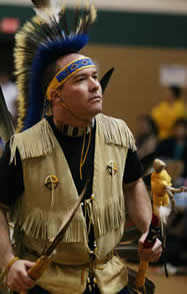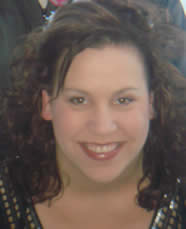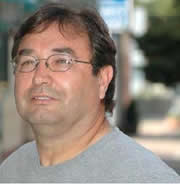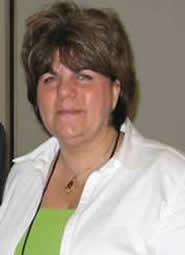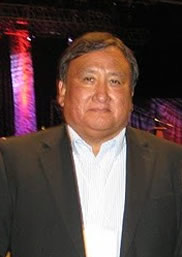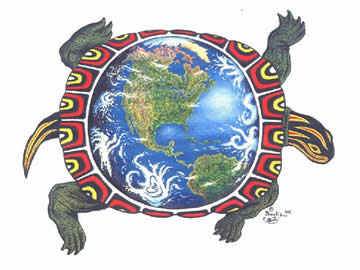
Future Generations
For more information about any of our associates please e-mail: contactus@reinhardtassociates.net |
|
Associates |
Service Provider Information |
Co-Owner/Division Director :
|
Dr. Martin Reinhardt is an Anishinaabe Ojibway citizen of the Sault Ste. Marie Tribe of Chippewa Indians from Michigan. He is a co-owner of First Nations, LLC and an assistant professor of Native American Studies at Northern Michigan University. He is a former research associate for the Interwest Equity Assistance Center at Colorado State University, the former vice president for diversity and research for Educational Options, Inc, the former director of the Center for Native American Studies at Northern Michigan University, and the former director of Native American Programs at Central Michigan University. He has taught courses in American Indian education, tribal law and government, and sociology. He has a Ph.D. in Educational Leadership from the Pennsylvania State University, where his doctoral research focused on Indian education and the law with a special focus on treaty educational provisions. Martin has previously served as: a member of the Michigan Indian Education Council; Chair of the American Association for Higher Education American Indian/Alaska Native Caucus; Co-Primary Investigator for the Michigan Rural Systemic Initiative; and as an external advisor for the National Indian School Board Association. He also holds both a Bachelor's and a Master’s degree in Sociology. |
|
Nicole R. Bowman-Farrell (Mohican/Munsee) is the President/Owner of Bowman Performance Consulting LLC (BPC). BPC is the only certified Native American and scientific research firm in the country. BPC provides educational and scientific consulting services as specialists working with at risk and diverse communities (social, economic, ethnic, linguistic, and geographic). Our services empower underserved groups so that policy, research, strategic planning, and evaluation efforts include and address their unique needs. Nicole was awarded the US Small Business Administration’s Young Entrepreneur of the Year Award signifying the only time a Native American or WI resident has ever been given this honor for her work on raising funds and sustaining programming to Native American and at risk communities. Currently Nicole serves on behalf of at risk/diverse audiences through the Northeast WI Technical College Presidential Diversity Advisory Board, Green Bay Public Schools Minority Achievement Committee, and the American Evaluation’s Diversity Task Force Committee. Additionally, Nicole has been appointed by WI Governor Doyle and/or selected by her academic colleagues to serve on numerous boards, national academic journals, and advisory committees for her expertise on education, economic development, evaluation, and community development. Her work in these areas has been utilized by and/or presented for the following organizations: American Civil Liberties Union, American Educational Research Association, American Evaluation Association, Great Lakes Intertribal Council, and National Congress of American Indians, and the WI Association of School Boards to name several. As a University of WI PhD Fellow, Nicole is currently completing her international PhD research on oral Indigenous knowledge use and transfer to contemporary practice. Her doctorate degree will be in Leadership & Policy Analysis. |
|
Thomas Biron is an Anishinaabe Ojibway citizen of the Garden River First Nation of Ojibway and the Sault Ste. Marie Tribe of Chippewa Indians. He provides consultation on repatriation, small business management, satellite telecommunications, ethnographic research, community health, Native American leadership development, and public policy. He holds master’s degrees in both Cultural Anthropology (Michigan State University) and Public Administration (Northern Michigan University), and a bachelor’s degree in Sociology and Psychology (Lake Superior State University). He has taught courses in Anthropology, Sociology, Native American Studies, and Humanities. Tom is the former coordinator of the Lansing Community College Native American Leadership Program, and a former health director for the Sault Ste. Marie Tribe of Chippewa Indians. His graduate studies have focused on community development and international repatriation. Tom’s research experience also includes: the Sault Ste. Marie Tribe of Chippewa Indians Teen Pregnancy Program (1984); the Michigan Department of Mental Health Tribal Health Study (1985); the United Way of Michigan-Kellogg Foundation Project Blueprint (1986-88); and the Veterans Trust Fund Internship- State Rep. Hollister Aid (1989). Tom has been running a small satellite telecommunications business in the Upper Peninsula of Michigan over the last six years, and periodically teaching as an adjunct instructor of Native American Studies. |
|
Aimee Cree Dunn is an unaffiliated Metis from the northern Great Lakes area. She studies the intersection of post-colonial and eco-critical theory particularly as it applies to northern rural and Native societies. Her M.A. is in English for which she researched the application of eco-criticism, post-colonial theory and the values of traditional ecological knowledge to science fiction and contemporary Native American literature. Her undergraduate education focused on American cultural studies and international multicultural history. Having taught Western history and college composition in the past, Aimee is currently a university instructor in the field of Native American studies with an emphasis on traditional ecological knowledge and international Indigenous environmental movements. She also coordinated Northern Michigan University's inaugural Indigenous Earth Day Summit at which Indigenous people from Australia, Canada and the United States were featured as speakers. She has worked with youth in various capacities from Upward Bound to traditional ecological knowledge workshops since 1999. |
|
Dr. Rose Marie (Di Roberto) Matuszny (Oneida and Menominee) graduated from Penn State University’s American Indian Doctoral program in December 2004, where she earned her doctorate in Special Education with a minor in Educational Administration. Her dissertation research was entitled American Indian Parental Involvement and Needs in the Special Education Process. Rose credits her family, especially, her grandmother Frances (“Fanny”) Dickie LeMay, for their encouragement and support in helping her reach her educational and career goals. Rose currently works as an assistant professor of special education at Appalachian State University in Boone, NC. She continues her research focus on the involvement of American Indian and other parents from diverse backgrounds in the special education process and is also interested in conducting collaborative research to resolve issues in the education for Indian students with disabilities. |
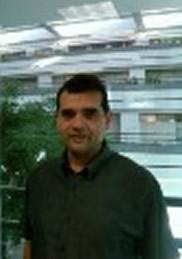
|
Miguel Mendívil is the son of an Akimel O’odham/Pascua Yaqui Pueblo father from Southeastern Arizona and a Mexican American mother from San Gabriel, California. He has been an educator for 19 years serving the mostly urban, inner city, Mexican American and Latino communities of East Los Angeles, Northeast Los Angeles and the southeast cities of Los Angeles County, all within the Los Angeles Unified School District (LAUSD). As a teacher, Miguel has served in many different bilingual classroom grade combinations. As an administrator, Miguel has served at the school level and in various district office instructional/curriculum policy and support roles. Miguel also worked as Director of Instructional Policy for then LAUSD Board Member, currently Los Angeles City Council Member José Huizar. Miguel’s focus of interest and expertise as an educator and researcher are in the areas of linguistics, second language and culture acquisition, critical thinking, culturally relevant curriculum and culturally responsive and constructivist pedagogy as well the impact of these issues and educational, economic and societal injustice on urban Native American, Latino and African American children. As the Academic English Mastery Program (AEMP), Standard English Learner (SEL)/Closing the Achievement Gap Specialist for LAUSD Local District 6, Miguel worked diligently at developing effective, participatory professional development sessions that draw on teachers’ experiences and challenges their assumptions, beliefs and thinking about linguistically and culturally diverse children from economically and politically marginalized communities. Most recently Miguel serves as clinical professor and Fieldwork Coordinator at Loyola Marymount University School of Education, Department of Clinical Education in Los Angeles, California. Miguel received his Bachelor of Arts Degree in Sociology from the University of Notre Dame in 1986, his state teaching credentials though the LAUSD District Intern Program in 1993, and a Masters and Credential in Educational Administration from the California State University, Los Angeles in 1996. Currently, Miguel is in his dissertation year as a doctoral student at the University of California, Irvine in the field of urban educational leadership. His area of research is the cognitive or critical thinking skills of urban, U.S. born non-immigrant Mexican American and American Indian children and how their Indigenous ways of knowing and learning, storytelling and pedagogies of their families and home inform their critical thinking styles and skills. |
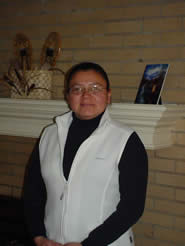
|
Tina Moses is an Anishinaabe Ojibway citizen of the Sault Ste. Marie Tribe of Chippewa Indians from Michigan. She is the principal secretary in the Center for Native American Studies at Northern Michigan University, and is a contributing author of the Indian Land Tenure Foundation's Integration of the Indian Land Tenure Curriculum professional development series. As the former director of Marquette Area Public Schools Title VII Native American Education Program, she was instrumental in putting together the first Native American Educational Fair for the district, a tradition that continues today. Tina has also served as an Early Head Start worker for the Sault Ste. Marie Tribe of Chippewa Indians, as a camp counselor for the Native American Youth Leadership Summer Program, and as an Ojibway Language and Culture instructor for Mt. Pleasant Area Public Schools. She has a bachelor's degree from Central Michigan University in Business Administration/General Management, and is pursuing a master's degree in Public Administration at Northern Michigan University. |
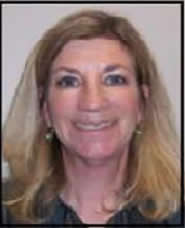
|
Dr. Jan Perry Evenstad has served in the area of educational equity for many years. She is the former senior research associate with the Interwest Equity Assistance Center, and has also worked as an equity specialist at Weber State University and in a comparable position with the Title IV unit at the Colorado Department of Education. She has also worked to forward the concerns of educational equity for all students in the area of standards and assessment through her curriculum and program management positions with Denver Public Schools and the NW BOCES. Her first hand experience in working with Trio Programs as a counselor, teacher and assistant director at the University of Wyoming and Montclair State University has also strengthened her experience in providing for equal educational opportunities for students in rural and urban settings. Her experience in teaching ranges for teaching Social Studies at the secondary level in traditional and non-traditional K-12 settings and at the higher education level. She has taught graduate level classes on multicultural education and urban education at Metropolitan State College of Denver and Colorado State University. Jan has a Ph.D. from the University of Denver in Education Administration where her doctoral research focused on educational equity and student assessment. Her areas of research have been on: diversity, assessment, and gender equity; American Indian dads and daughters; and bullying in a single sex residential environment. Other areas of expertise are civil rights, cultural diversity, gender equity, multicultural education, women's history, curriculum and instruction. She has developed training materials for workshops and staff development in the areas of Title IX, standards and assessment, racial harassment, sexual harassment, multicultural education, and race and gender equity in education. |
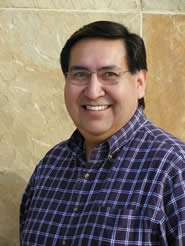
|
Calvin C. Pohawpatchoko Jr., a member of the Numunu (Comanche Tribe) from the Quahada clan (Antelope) and has worked in the IT industry for 25+ years developing financial systems for private and government endeavors. His personal goal is obtain a PhD and to teach at a Tribal College or University. His degree is in Information Systems/Computer Science and a Master’s in Object Oriented Technology with Honors. He has worked for corporations like Fox-Meyer (now Bristol-Meyer), National Foundation Life Insurance, Hertz Corporation, Midland/Met Financial Group, Information Handling Services and Jeppesen-Boeing. As a consultant, he has work with government agencies as Federal Crop Insurance Corporation and several associated agencies within USDA. Also, as a consultant with EDS, he has work with GM, Buick, Chevrolet, IBM, Fujitsu, Storage Tek and Roll Royce. He has an interest in technology and how technology can be used in K-16 Education, Business, Leadership and Research for Native Americans. He has attended several National Indian Education Association (NIEA) meetings and has spoken at workshops for the Universities Northern Colorado, Native American Innovative Educational Leadership Program. He has served with the Colorado Commission on Higher Education (CCHE) on the advisory committee for the College in Colorado Campaign and the pre-collegiate consortium strategic advisory committee. He currently serves on the University of Colorado’s Multi-Cultural Engineering Program Advisory Council. He is the advisor for CU American Indian Science and Engineering Society Chapter (AISES). He has also been a special speaker for IBM’s Native American Technology Journey Family Group. He’s currently a PhD candidate at University of Colorado in their Alliance for Technology, Learning and Society. |
|
Kathy Rigsby is the former assistant director of the Interwest Equity Assistance Center. She has worked with three Equity (Desegregation) Assistance Centers in Region VIII, one at Colorado State University, one at Weber State University (UT), and one at Metropolitan State College of Denver (CO). She has a strong background and training in gender equity, civil rights, program development and management, and staff development and training. Kathy has developed and published materials on Title IX compliance, on the prevention of sexual harassment, and the prevention of racial harassment. She has developed and delivered district-wide training to reduce racial and gender bias and on the prevention of sexual harassment for many school districts in Region VIII. Kathy has presented at numerous regional and national conferences on issues of Title IX and gender equity. Her particular areas of expertise include gender equity, women's history, civil rights, educational equity, reducing bias in school, and cultural diversity. |
|
Mr. Roman Nose, a member of the Cheyenne and Arapaho Tribes, has 16 years of Title VII Indian Education experience and served six years as the his tribes' Tribal Education Department Executive Director. He has served as the President for the Tribal Education Departments National Assembly (TEDNA). He is a firm believer in tribal sovereignty in education which means more control of education by those tribes who put education as a high priority. He has given testimony at both the US Department of Education tribal consultation hearings and at a listening session conducted by the Senate Committee on Indian Affairs.
He and other Oklahoma Indian Educators advocated for Indian Education in Oklahoma for several years which resulted in a recent state law which established the Oklahoma Indian Education Advisory Council. Quinton is serving his second term as a member of the Board of Directors for the National Indian Education Association. He is the President-Elect for NIEA for the 2010-2011 term year and will be President for the 2011-2012 term year.
His undergraduate studies were in Mathematics and graduate studies in Gifted-Talented Education. He served two years as a Field Artillery officer during the Vietnam era. He and his wife, Ladonna, have four children and eight grand children. "To build strong tribal nations, productive tribal citizens and effective future leadership, tribal leaders need to make education a top priority for their tribal members" - Quinton Roman Nose |
|
Ramon F. Villarreal is the former director of the Interwest Equity Assistance Cdenter. He is a former Federal manager with a 30+ year career in civil rights, education, and technical assistance. His professional experience in the U. S. Department of Education, Office for Civil Rights includes Director, Customer Service, and Director of Compliance and Enforcement Division. Additionally, he has served as a Regional Equal Employment Opportunity Officer (EEO) and as a TRIO Program Officer. He has worked nationwide in mediating racial incidents, working in the Community Relations Service for the Department of Justice. As a Vista/Office of Equal Opportunity Program Officer, he developed and supported educational programs. He is also bi-lingual (Spanish-English), and has recentlyn authored a book about his memoirs from the bario. |
